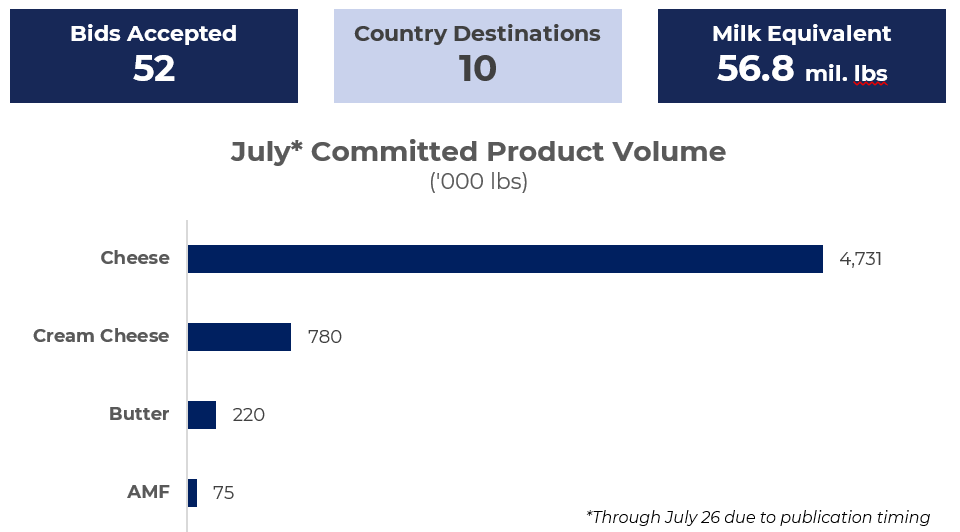The future of U.S. dairy lies in exports, which is taking up an increasing share of U.S. milk production. And as with all markets, pleasing the customer is a key to success; internationally, the perceived sustainability of a product is a key element of customer decision-making.
That can bring peril to dairy farmers, as anti-animal agriculture activists have unfairly made livestock a target worldwide over alleged issues with sustainability. Across the globe, dairy farms that are seen as environmentally unfriendly are being penalized by governments and facing pressure to change practices at the risk of added costs or lost business. Denmark, for example, has made headlines as the first country to tax livestock farmers for greenhouse gases emitted by cows, sheep and pigs.
But for American milk producers, armed with the right tools and appropriate public policy, sustainability can make farmers more money than it may cost them.
Sustainability pressures have been less intense in the United States, in large part because of the dairy industry’s proactive leadership via our industry Net Zero goals, our FARM Program stewardship, and our demonstrable record as a global leader in sustainability. While farmers elsewhere see threats to their production, U.S. farmers can tout their sustainability and increase their global share, showing how U.S. dairy can succeed – in fact, even thrive, in this environment.
But opportunities need to be underpinned by sound policy and solid economics. Because if the economics of sustainability don’t work, then sustainability efforts will fail.
One important step toward making this challenge work occurred in May, when FDA completed its review of the safety and effectiveness data of Bovaer, the first FDA-reviewed feed ingredient with a methane-reduction claim for lactating dairy cattle. This tool has been available to our competitors; FDA’s latest action now puts U.S. dairy on a more competitive playing field with its global counterparts.
After years of NMPF and industry advocacy, Bovaer will now be available to American dairy producers. That win creates opportunities: Implementing feed ingredient or feed additive interventions creates the potential to sell carbon credits or carbon reductions in carbon markets. It also paves the way for USDA conservation program support. NMPF member cooperatives and their industry partners were grateful that USDA awarded $89 million last year under the Regional Conservation Partnership Program to support farms in using Bovaer to reduce their methane emissions. Dairy hopes for more RCPP resources this year to boost farmer uptake nationwide.
Elanco, Bovaer’s manufacturer, estimates that use of its product has the potential to create an annual return of $20 or more per lactating cow, which would make the feed additive not only beneficial for the environment, but also for farmer profitability, not counting potential feed efficiency that can boost margins.
But obviously, one development alone isn’t the end-all toward making sustainability profitable. NMPF is also supporting passage of the Innovative FEED Act, a bipartisan measure introduced in both chambers of Congress that directs FDA to review enteric-reducing and other products using its Food Additive Petition process. Supporting IFEED would boost the economic sustainability of dairy producers by allowing more innovative products into the marketplace faster. NMPF has long advocated for faster review and approval of animal feed ingredients that can reduce enteric methane emissions.
NMPF is also advocating for passage of the bipartisan, bicameral EMIT LESS Act to help get these important feed additives into the hands of farmers quickly. This measure would better target popular voluntary conservation programs like the Environmental Quality Incentives Program and the Conservation Stewardship Program toward farmer adoption of enteric emission-reducing products like Bovaer. As environmental markets continue to develop, this targeted support will be vital to helping farmers who choose to adopt these products in a financially viable and successful manner.
Regardless of the momentary political winds, sustainability is unlikely to subside as a political or marketplace concern. But American dairy producers can benefit, especially as competitors find themselves under even greater pressures and U.S. dairy farmers stand ready to meet global demand.
Exciting opportunities to create a more sustainable and profitable future for the dairy sector are emerging. With smart decisions and a farmer-focused approach, U.S. dairy can be the global leader, nourishing the world and boosting farmer fortunes at home.

Gregg Doud
President & CEO, NMPF







